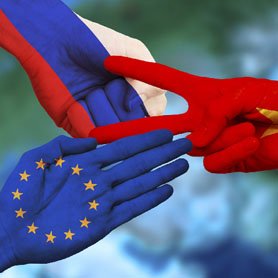Research & Studies

Lecture by Ahmet Evin – Sabanci University, iASK
Eurasia both poses a critical challenge and offers an opportunity for the EU. The demise of the Soviet empire has had unexpected consequences globally and, in particular, for the Atlantic Alliance. The EU’s enlargement fatigue, following the “big-bang” eastern enlargement has had a centrifugal effect on the Union with national support for the EU institutions diminishing significantly in many member states. The EU’s much-flaunted soft power has lost its effectiveness as a result of the successive economic crises beginning in 2007-2008. Europe’s eastern border has come to separate the Union from unstable and adversarial neighbors posing a variety of threats to the West. An adversarial dividing line is also appearing in the Southeast ,exacerbated with the internal EU disagreement regarding what to do with asylum-seeking migrants from Syria and other points east. Many analysts from both sides of the Atlantic are asking whether there is a revival of the cold war between Russia and the West.
The transatlantic divergence over the liberal order, on the one hand, and China’s rise and increasing influence on the global economy, on the other, are providing powerful incentives for Europe’s pivot east. The Atlanticist perspective adopted after the Second World War, I will argue, camouflaged the realities of Eurasia behind the iron curtain and beyond Russia. As a result, we have a defective perspective of Eurasia and have little knowledge of its complex and contradictory dynamics. A clear understanding of what Eurasia is (the world’s biggest landmass undivided by natural borders?) will be essential for Europe to derive significant benefit from China’s One Belt One Road initiative. The discussion will address iasK’s theme for the year: in which ways might Eurasia influence the future of Europe.
Date: on 2nd of May at 2.00 p.m.
Venue: Zwinger, Kőszeg H-9730 Chernel st. 16.